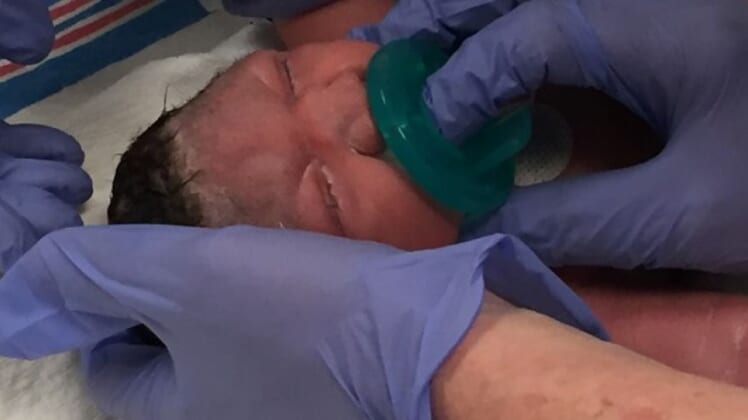
Doctors at Hackensack University Medical Center in New Jersey confirmed Tuesday the birth of a child suffering from Zika virus linked microcephaly, a condition wherein the child’s brain and head are partially developed.
The mother, who is 31 but whose name was not disclosed, contracted the Zika virus while in Honduras and was admitted to the emergency room at Hackensack on Friday while vacationing in the United States. Tuesday, doctors delivered her baby girl, who was born also with intestinal and visual issues. Reports indicate she is the first child born with Zika-linked complications in the New York tri-state area.
The child’s mother, who developed a rash for two days in Honduras but had no other symptoms until arriving in the U.S., was under the care of a surgical team led by Dr. Abdulla Al-Khan and Dr. Manny Alvarez. A neonatologist and pediatric infectious disease specialist, as well as nursing personnel, were on hand for the birth.
Doctors in Honduras suspected intracranial complications with the child in utero, but it was not until she was admitted to the high-risk unit at Hackensack University Medical Center that doctors confirmed the microcephaly diagnosis. The patient’s aunt told FoxNews.com the mother is not doing well emotionally after the birth of her child.
While this is the first birth of a child with Zika virus linked complications at Hackensack, it is not the first such case in the U.S. In February, the Centers for Disease Control and Prevention (CDC) confirmed that a woman delivered a baby who suffered from severe microcephaly as a result of Zika virus infection.
Microcephaly is a birth defect wherein a baby’s head is smaller than expected compared with other babies of the same sex and age. According to the CDC, babies with the condition typically have smaller brains that might not have developed properly. Microcephaly can also cause seizures, developmental delays, intellectual disability, hearing loss, vision problems, feeding issues, and problems with movement and balance. In April, researchers at the CDC concluded that after a careful review of evidence, the Zika virus is a cause of microcephaly and other severe fetal brain defects.
More on Zika Virus:
Zika Virus: What you need to know
Safety Ahead of Profits when it comes to Zika
The CDC has advised pregnant women to avoid traveling to areas where Zika virus is spreading, and to talk to a health care provider to prevent sexual transmission of the virus. According to the World Health Organization (WHO), women planning to become pregnant should wait at least eight weeks before trying to conceive if they or their partner live in or are returning from Zika virus hotspots.
While there is no vaccine to prevent Zika virus, health officials recommend wearing long-sleeved shirts and pants, as well as practicing mosquito control to prevent infection where Zika virus is being transmitted. According to the CDC, 591 cases of Zika have been diagnosed in the U.S., and all have been travel related. Infected patients typically do not present symptoms, but those who do may complain of fever, rash, joint pain or red eyes.
